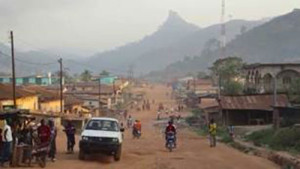
 The relatively peaceful nation of Ivory Coast saw painful images of a recent past as military police launched a mutiny over low salaries and working conditions.
The relatively peaceful nation of Ivory Coast saw painful images of a recent past as military police launched a mutiny over low salaries and working conditions.
Not long ago, the country was in chaos as former President Laurent Gbagbo rejected election returns that favored the opposition led by Alassane Ouattara. President Ouattara, who assumed office in December 2010, reportedly has now acceded to the demands of the security forces but has also dismissed the heads of the army, police and paramilitary gendarmes in a bid to end the unrest.
The mutineers are mostly stationed in Bouake, Man, Daloa, Daoukro and other central Ivorian cities, and in Korhogo in the north. Reports from the region describe them as mainly former rebels who integrated into the army following the end of the war.
Earlier last week, soldiers armed with AK-47 assault rifles fired at the offices of the state broadcaster in the city, and seized control of Bouake’s western entrance, a resident told the BBC.
An MP for Bouake, Bema Fofana, told the BBC that the soldiers did not appear to have a leader or spokesman, making it difficult to negotiate with them.
A teacher in Bouake, Ami Soro, said the city was deserted, Reuters news agency reports.
“Men in balaclavas are patrolling the city on motorcycles or in cars. They aren’t attacking residents… They told us to stay at home,” she was quoted as saying.
While financial institutions such as the International Monetary Fund have praised Ivory Coast for its pro-investor climate, it’s not clear that all Ivorians are benefitting. A new constitution presented last year by the president was met with violence at around 100 polling stations.
Turnout in Abidjan was visibly lower than during previous year’s presidential election when 54.6 percent of eligible voters cast ballots, a fact that opposition leader Pascal Affi N’Guessan said demonstrated the text’s rejection by the people.
The new text allows future changes to the constitution to go ahead without a referendum and with a two thirds majority in parliament – a body now dominated by Ouattara’s allies.

Be the first to comment